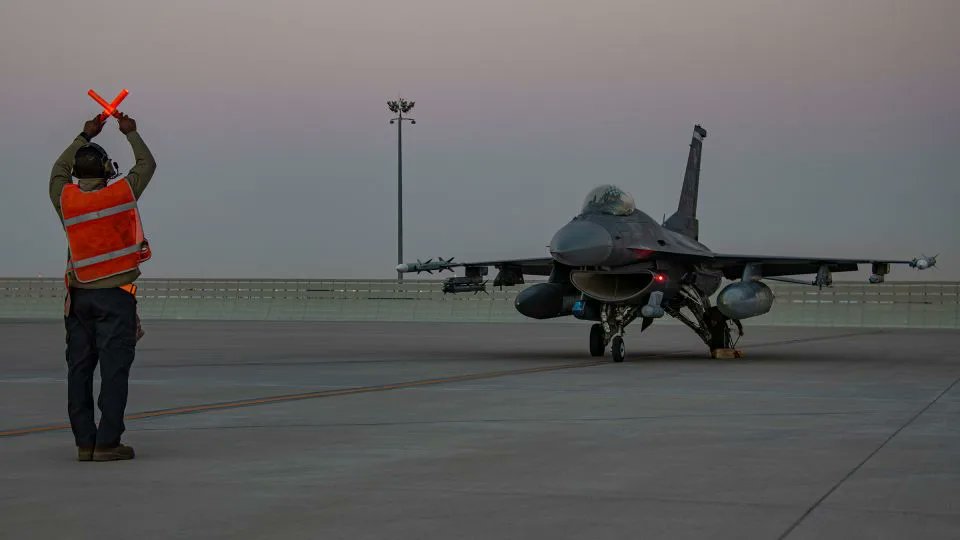The base plays a vital role in the U.S. Central Command’s operations in Afghanistan, Iran, and across the Middle East and also serves as a base for the Qatari and British Air Forces.
The United States has finalised an agreement with Qatar to extend its military presence at the Al Udeid Air Base, a critical installation in the Middle East, for an additional 10 years, according to a report by CNN.
The report cites three U.S. defence officials and another source familiar with the matter who have confirmed that the deal, although not publicly announced, cements Washington’s reliance on Qatar.
The Gulf nation has recently emerged as a key mediator in securing the release of Americans held in Gaza and Venezuela.
The Al Udeid Air Base, located southwest of Doha, is the largest U.S. military facility in the Middle East, accommodating over 10,000 American troops.
During his visit last month, Secretary of Defense Lloyd Austin acknowledged Qatar’s increased expenditure on the base, although he did not mention the renewal of the agreement.
The Biden administration has kept this renewal under wraps, particularly as Qatar faces criticism for hosting senior Hamas leaders against the backdrop of Israel’s brutal assault on Gaza.
Qatari officials have responded to the criticism by stating that hosting Hamas was a move initiated at the request of the U.S. during the Obama administration.
Amid perceived rising threats to American interests from Iran-backed militant groups in Iraq, Syria, and Yemen, the U.S. has reinforced its military presence in the region.
Qatar’s role as a mediator in hostage negotiations, including facilitating the release of Israeli and international hostages held by Hamas and Americans detained by Venezuela, has been pivotal to their relations with the U.S.
The latter resulted in the release of 10 Americans in exchange for a Venezuelan ally accused of alleged money laundering by the U.S.
Qatar’s diplomatic efforts extend to mediating with other U.S. adversaries like Iran and the Taliban.
According to CNN, despite the robust relations between the two countries, President Joe Biden’s public statements and writings have occasionally omitted Qatar’s contributions, such as in his November op-ed in The Washington Post and his statement on the Venezuela detainees, which did not acknowledge Qatar’s role.
The Al Udeid base was pivotal during the chaotic American withdrawal from Afghanistan in 2021, serving as a transit point for thousands of Afghan refugees.
Qatar has invested billions in upgrading the base’s facilities for U.S. Airmen. The base became CENTCOM’s main air base in 2003, shifting from the Prince Sultan Air Base in Saudi Arabia.
While Secretary Austin did not announce the extension during his last visit, he emphasised the U.S.-Qatar bilateral defence relationship, citing Qatar’s commitment to enhancing capabilities at Al Udeid.
The relationship between Qatar and the United States has been multifaceted and dynamic, marked by close cooperation in various domains, including military, economic, and diplomatic efforts.
History of Qatar-U.S. relations
A significant turning point in the Qatar-U.S. relationship was Qatar’s designation as a major non-NATO ally by the United States.
This status grants Qatar special economic and military privileges in its relationship with the U.S.
The military cooperation between Qatar and the United States has been noteworthy. Since 1992, Qatar has fostered intimate military ties with the U.S. and is now home to the U.S. Central Command’s Forward Headquarters and the Combined Air Operations Centre.
The Gulf country also contributed more than $8 billion since 2003 in developing the Al-Udeid Air Base.
The base hosts various critical U.S. military components, including the headquarters of the U.S. Central Command Forward, U.S. Air Force Central Command Forward, and U.S. Special Operations Command Central Command Forward.
Qatar also supports U.S. naval operations by hosting U.S. Navy ship port visits, facilitating crew liberty, and logistic ship resupply.
Additionally, Qatar backs the Combined Maritime Forces Combined Task Force 152, a multinational naval partnership that conducts maritime security operations in the Persian Gulf.
The financial aspect of the Qatar-U.S. military relationship is also substantial.
The U.S. has active government-to-government cases with Qatar under the Foreign Military Sales (FMS) system, totalling over $26 billion, making Qatar the second-largest FMS partner globally.
Significant sales include advanced defence systems like the Patriot long-range missile system, F-15QA fighter aircraft, and AH-64E Apache attack helicopters.
Since 2016, the U.S. has also authorised the export of over $2.8 billion in defence articles to Qatar via the Direct Commercial Sales process.
The two countries have also established several defence cooperation agreements, including the 2012 General Security of Military Information Agreement, the 2013 Acquisition and Cross-Servicing Agreement, the 2013 Basic Exchange and Cooperation Agreement for Geospatial Intelligence, the 2014 Defense Cooperation Agreement, the 2016 Communications Interoperability and Security Memorandum of Agreement, and the 2020 Maritime Implementing Agreement.







